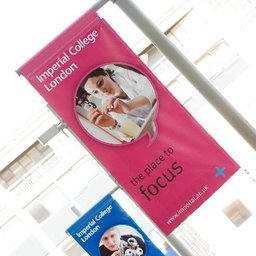ENG03650
Faculty of Engineering
Department of Bioengineering
£49,017 - £57,472 per annum
South Kensington and White City Campus - On site only
Full time - Fixed term
About the role
Applications are invited for a Research Associate position within the Güder Research Group in the Department of Bioengineering at Imperial College London.
We are looking for a new member to join our team with a background in soft sensor design and integration. You will be part of a new and exciting project funded by the Biomedical Catalyst to develop SqueezAble, a transformative soft-stretchy sensor tool for family-led paediatric bimanual therapy. The aim of this project is to industrialise a handheld upper-limb therapy device that uses first-of-a-kind soft-silicon sensing technology with encapsulated electronics. The technology we want to develop combines patented soft-sensing technology with multimodal feedback to revolutionise occupational therapy for children with life-limiting upper-limb disabilities like Cerebral Palsy. The successful applicant will work on improving sensor lifespan from 3 months to >12 months, developing machine learning algorithms to interpret clinically-relevant bimanual interactions, and supporting user testing with paediatric patients: thus, this project is highly interdisciplinary and will include elements of soft materials science, electrochemistry, data analytics, and clinical research. The delivery of this technology will enable real-time data monitoring of bimanual actions to inform patient-centered care and improve therapeutic outcomes for vulnerable children.
What you would be doing
Your key responsibilities will involve the day-to-day running of the project, including the design and development of soft-stretchy sensor technology with improved lifespan for paediatric therapy applications. You will focus on sensor encapsulation techniques, accelerated lifetime testing, and characterisation using impedance spectroscopy and voltammetry. You will develop algorithms for classifying clinically appropriate user bimanual movements and work on integrating machine learning methodologies to interpret sensor data into actionable clinical insights. You will assist in the validation of sensor prototypes and support user testing activities with paediatric cerebral palsy patients. You will also be responsible for presenting findings to colleagues at internal and external meetings and conferences, collaborating with consortium partners, including Unhindr Ltd and clinical organisations, and assisting in the preparation of manuscripts for publication. Furthermore, you will need to assist in writing reports for the Biomedical Catalyst funder and, when needed, help write new project proposals for funding.
What we are looking for
- A PhD or equivalent in bioengineering, materials science, mechanical engineering, or related disciplines
- Experience with and/or knowledge of soft sensor technologies, stretchable electronics, or electrochemical sensing methods
- Experience with sensor encapsulation techniques, materials characterisation, and durability testing
- Knowledge of soft materials, silicone encapsulation, and sensor design principles
- Experience with sensor instrumentation (e.g., analogue circuit design) and embedded systems (e.g., PCB design, C/C++)
- Experience with signal processing (e.g., MATLAB/Python) of sensor data, and machine learning experience is a plus
- Industry experience in product development and/or manufacturing processes is a huge plus
- Experience with paediatric device design considerations and clinical research methods is desirable
What we can offer you
- The opportunity to continue your career at a world-leading institution and be part of our mission to continue science for humanity.
- Grow your career: gain access to Imperial’s sector-leading dedicated career support for researchers as well as opportunities for promotion and progression.
- Sector-leading salary and remuneration package (including 39 days off a year and generous pension schemes).
- Be part of a diverse, inclusive and collaborative work culture with various staff networks and resources to support your personal and professional wellbeing.
Further information
The post is available with an immediate start to work full-time on a fixed-term contract for up to 16 months in the first instance until 31 May 2027 at the latest, with any extension subject to research funding.
If you require any further details about the role, please contact Dr. Firat Guder at [email protected]
Closing date: Midnight on Sunday 31 August 2025
Available documents
We reserve the right to close the advert prior to the closing date stated should we receive a high volume of applications. It is therefore advisable that you submit your application as early as possible to avoid disappointment.
If you encounter any technical issues while applying online, please don't hesitate to email us at [email protected]. We're here to help.
About Imperial
Welcome to Imperial, a global top ten university where scientific imagination leads to world-changing impact.
Join us and be part of something bigger. From global health to climate change, AI to business leadership, here at Imperial we navigate some of the world’s toughest challenges. Whatever your role, your contribution will have a lasting impact.
As a member of our vibrant community of 22,000 students and 8,000 staff, you’ll collaborate with passionate minds across nine London campuses and a global network.
This is your chance to help shape the future. We hope you’ll join us at Imperial College London.
Our Culture
We work towards equality of opportunity, to eliminating discrimination, and to creating an inclusive working environment for all. We encourage applications from all backgrounds, communities and industries, and are committed to employing a team that has diverse skills, experiences and abilities. You can read more about our commitment on our webpages.
Our values are at the root of everything we do and everyone in our community is expected to demonstrate respect, collaboration, excellence, integrity, and innovation.





